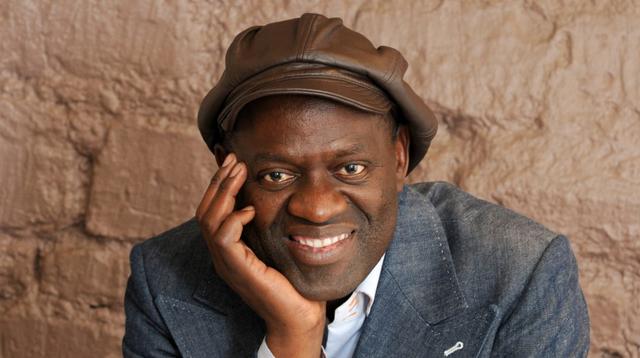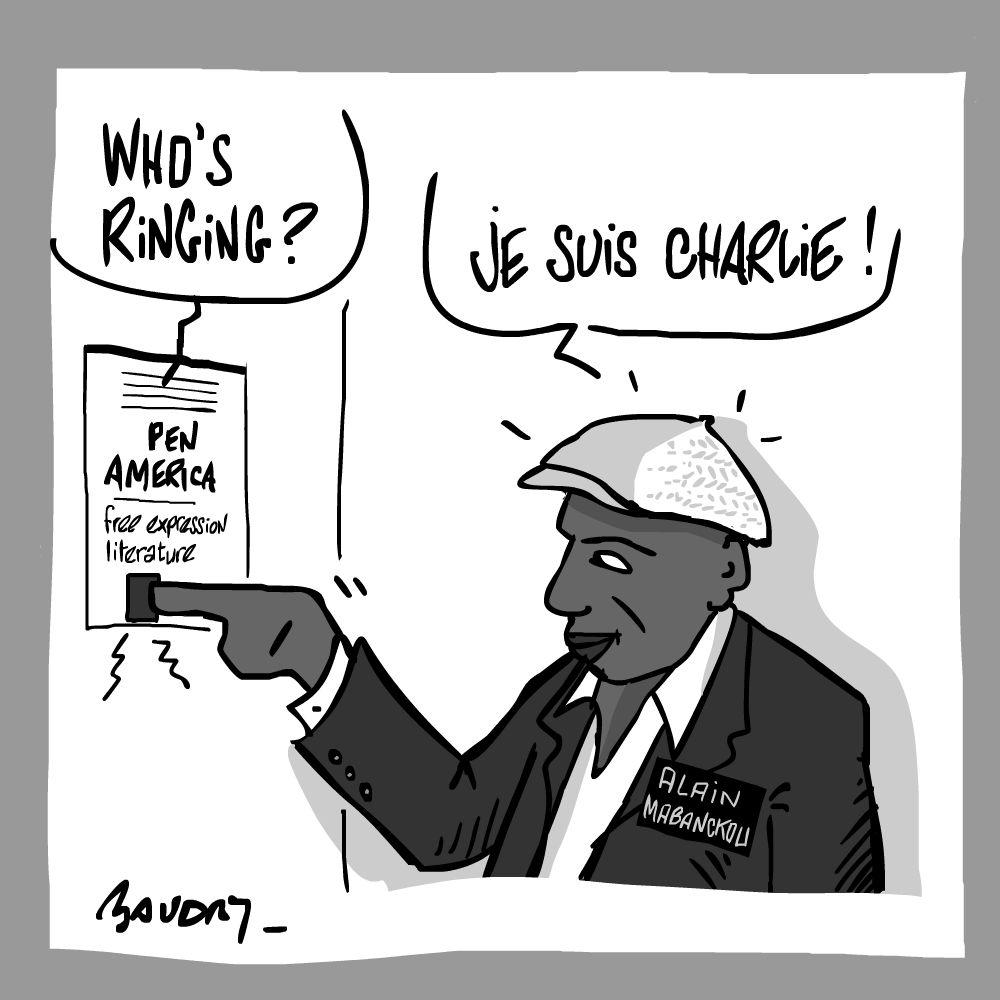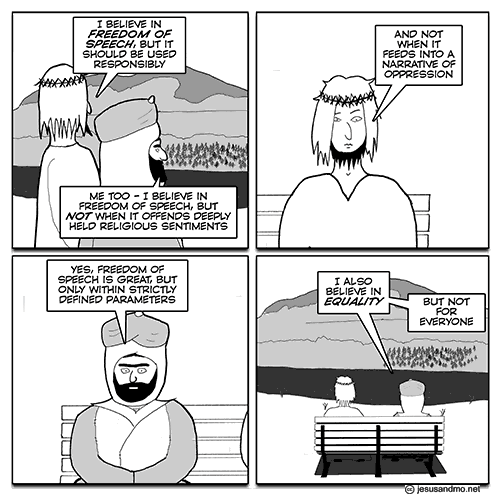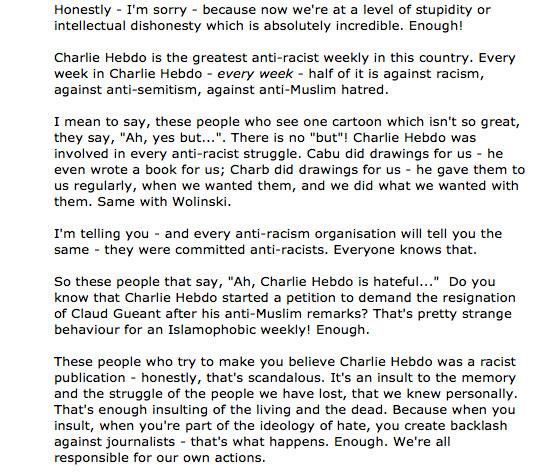Andrew Solomon and Suzanne Nossel explain why PEN is giving Charlie Hebdo an award.
Although censorship has traditionally been the province primarily of governments, attempts to curb speech are likewise undertaken by vigilantes who employ threats and violence. In the last few months we have seen shootings at Charlie Hebdo and at a free-speech event in Copenhagen; the hacking to death of two Bangladeshi atheist bloggers, one of them an American; a death threat against an Australian political cartoonist by jihadists; and the gunning down of a Pakistani social activist.
I missed the death threat against an Australian political cartoonist, but all the other items I’ve been ranting about relentlessly. [Read more…]







